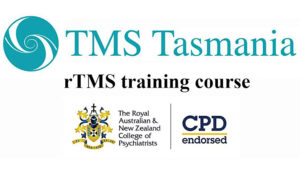Conversion Practices
In 2019 the Victorian Government proposed that in 2020 legislation would be introduced to prohibit conversion therapy/practices. The government has asked for comment about the proposed legislation by 24 November 2019. The National Association of Practising Psychiatrists (NAPP) is making a submission to the Department of Justice and Community Safety. The submission is outlined below.
NAPP Statement on Conversion Practices
The definition of conversion therapy/practices in the Victorian Government proposal on this topic is as follows:
Conversion therapy/practices, often referred to as gay conversion therapy, is defined as any practice or treatment that seeks to change, suppress or eliminate an individual’s sexual orientation or gender identity, including efforts to reduce or eliminate sexual and/or romantic attractions or feelings toward individuals of the same gender, or efforts to change gender expressions.
Contemporary forms of conversion therapy/practices can include counselling, psychology or psychotherapy, formal behaviour-change programs, support groups, prayer-based approaches and exorcisms. Providers of conversion therapy/practices may include unregulated health service providers.
We note that now conversion practices include ‘an attempt to change a person’s sexual orientation or gender identity’. Gender identity has been added to the previous definition of conversion practices that related to change of a person’s sexual orientation. Sexual orientation and gender identity can involve different considerations in the clinical setting.
Unless conversion practices are narrowly and clearly defined in Victorian regulations, then doctors (including psychiatrists) using established approaches to assessing and treating patients with gender dysphoria may be in breach of the new Victorian legislation outlawing conversion practices.
Medical diagnosis requires a thoughtful, comprehensive and detailed assessment of the presenting clinical condition and the underlying possible alternative explanations and/or causes of those conditions.
With gender dysphoria this means exploring and understanding the reasons why an individual has come to the belief that their gender is different to the gender assigned at birth. Medical and psychiatric disorders identified in this process will need appropriate treatment (with consent) in order to enhance the well being of the patient.
These conventional and ethical actions of the physician must never be regarded as conversion practices under Victorian law. Any denial of patients presenting with gender dysphoria of the appropriate assessment and treatment of conditions leading to gender dysphoria or associated with it is an abjuration of the legitimate care of these individuals.
NAPP is concerned that the usual process of psychiatric assessment and treatment of psychiatric disorders could be misinterpreted as ‘conversion therapy’ in the clinical setting of gender dysphoria.
NAPP notes that psychotherapy is included in the Victorian Government definitions of conversion therapy. There are different types of psychotherapy and these include supportive, cognitive behaviour therapy, psychodynamic, psychoanalytic, and brief psychotherapy. Psychotherapy as practised by psychiatrists as a treatment modality is not conversion therapy.
The focus of both sexual orientation and/or gender identity can change over the course of psychiatric treatment. This is not conversion therapy. A patient may experience a change in the object of their sexual attraction during a course of psychiatric treatment. For example, a patient with a psychotic disorder, who has delusions and hallucinations about men, may lose these symptoms as a result of psychiatric treatment.
Further, as a result of the loss of an irrationally based fear during treatment, the patient may experience a sexual attraction to an individual of a gender opposite to the gender the patient was attracted to at the beginning of therapy. During the treatment and recovery from an episode of depressive illness or anxiety disorder a patient may experience a change in sexual attraction or gender identity.
Children and adolescents may temporarily have thoughts of being of a different gender to their gender assigned at birth due to the influences of social contagion, multiple psychosocial factors (including a history of sexual abuse), and the presence of psychiatric illness. Psychiatric assessment and treatment of children and adolescents, which is grounded on evidence-based practice, should not be labelled conversion therapy.
NAPP is concerned that there are dangers to patients if conventional psychiatric assessment and treatment is mislabelled as conversion practices. The danger is that psychiatrists and other doctors using conventional clinical methods will be at risk of criminal prosecution or deregistration when serving patients with sexual orientation or gender identity concerns. As a result, these patients will not be able to access psychiatric treatment in Victoria.
In order to avoid this undesirable consequence of prohibiting conversion practices in Victoria, NAPP recommends an amendment to the definition of conversion therapy/practices as follows:
That any therapy or practice deemed to be conversion practices must be practices that only and solely have as their purpose the change of sexual orientation or gender identity, and
That the definition of conversion practices exclude treatments and practices that explore and understand the underlying clinical influences on sexual orientation and gender identity, and provide empathic acknowledgment and evidence-based, support, and understanding for the facilitation of an individual’s coping, social support, and identity exploration and development, and the treatment of any identified psychiatric comorbidity.
NAPP considers that the proposed legislation to provide protection from conversion practices should be primarily directed to children (up to age 18) and adults who do not have the capacity to provide informed consent.
People who have undergone medical and surgical transgender treatment and subsequently regret this treatment should be acknowledged and not be banned from stating their experience on public media. Discussion of these concerns and fears with their physicians is not conversion therapy and must not be mislabelled conversion therapy.
NAPP supports freedom of speech so that scientific matters can be debated and people can speak with their health care providers honestly, or if they chose, to tell others publicly of their experience without being prosecuted by the state.


